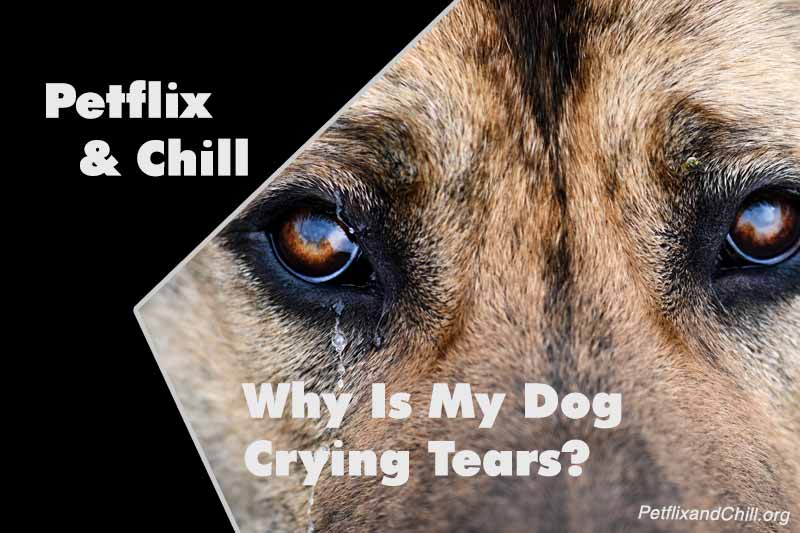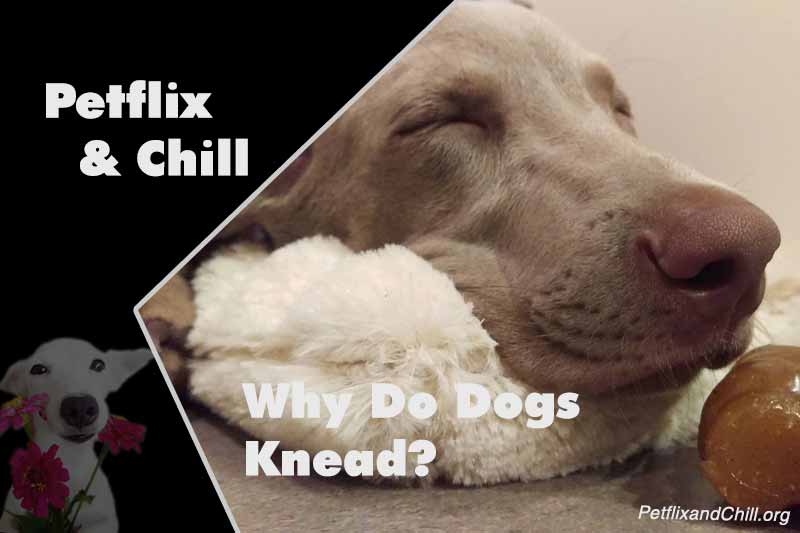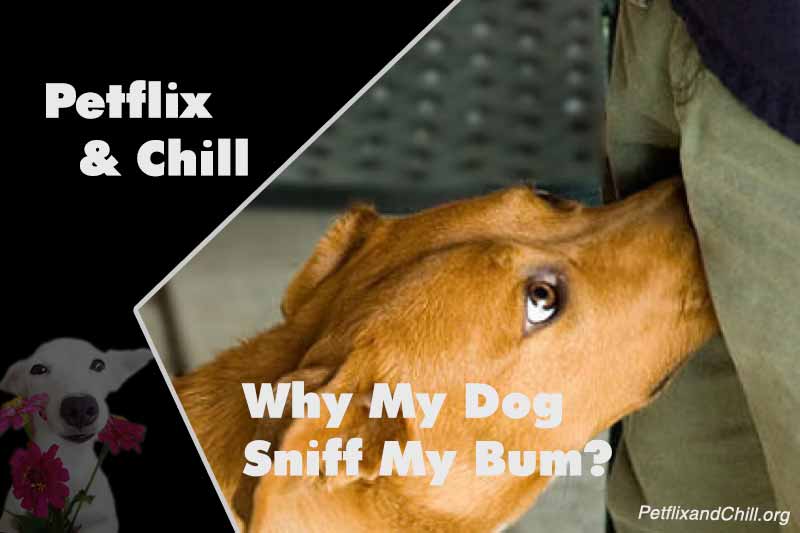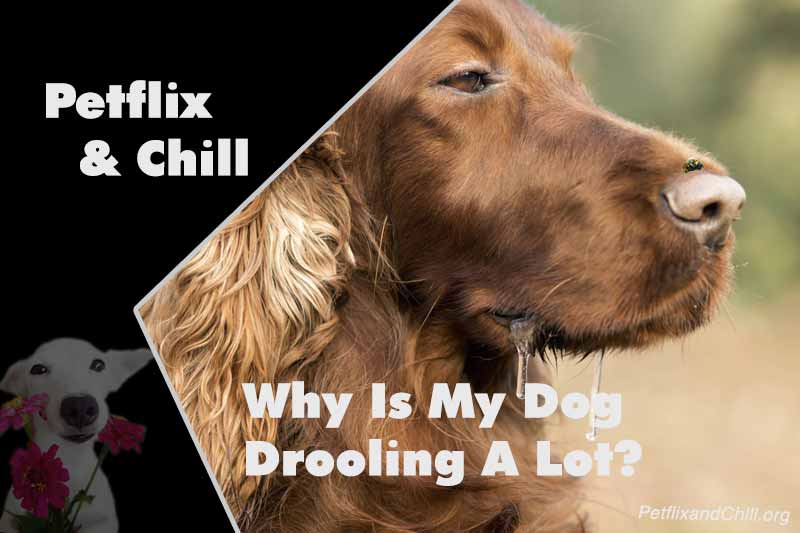Is your furry friend looking up at you with watery eyes, leaving you wondering, why is my dog crying tears? It’s easy to assume sadness, but dogs don’t cry like humans do. When those tears start to show, it can be a signal that something’s off. Before jumping to conclusions, you should explore the most common triggers and what they might mean for your pet.
Why Is My Dog Crying Tears?
If your pet is crying tears, it could be more than just a reaction to the environment. There are several common causes of watery eyes in dogs. Here are the most likely reasons behind this behavior:
Allergies

Why is my puppy crying so much? Like humans, canines can have allergies. Your pooch could get food allergies, seasonal allergies, or even chemical and soap sensitivities if their nose is sensitive.
Typical signs of allergies in dogs include:
- Frequent sneezing
- Inflammation
- Swelling
- Hives
- Coughing
Dirt/Dust
Why is my puppy crying for no reason? A bit of debris or dust particles likely enters the eyelash if the canine cries after digging in the garden. In most cases, it’s innocuous, and your pet will quickly stop crying. However, if your dog’s tears don’t stop, you may need to take it to a vet to find out what’s triggering the problem.
Eye Infections
An eye infection may cause your pet’s tears if you have observed that they include blood, are yellowish, or produce mucus. Other symptoms like irritation of the eyes and swelling could also accompany it.
Dogs may have eye infections for the following reasons:
- Trauma
- Bacteria and viruses
- The parasites
- Spores of fungi
- Cut or scratch on the eye
It is recommended that your pooch be examined by a vet immediately if it has these signs to receive proper medical treatment.
Dry Eye

Your dog may frequently weep and have a sticky, adhering discharge coming from their eyes. Insufficient moisture production in your pet’s eyes might result in symptoms of dry eyes. These symptoms appear with mucus and inflammation. Common causes of dry eyes in canines include:
- Corneal ulcers
- Autoimmune diseases
- Distemper
- Damaged tear glands
Eye Injuries (Conjunctivitis)
Conjunctivitis may also be the reason for your canine’s wet eyes. The pink tissue near your pet’s eye corners is inflamed and causes this issue. Here are the common reasons for conjunctivitis in dogs:
- Dry eye
- Irritation
- Distemper
- Allergies
- Birth deformities
- Tumors
- Traumas
- Issues with the tear ducts
Tear Duct Blockage
Blocked tear ducts, sometimes called epiphora, cause tears to flow out of your canine’s eye rather than out of the nasal area. Improper eyelid function resulting from a nasolacrimal duct malformation or obstruction is the most frequent reason behind epiphora.
The following are typical signs of clogged tear ducts:
- Wetness or dampness below the dog’s eyes
- Skin infection
- Stains that are reddish-brown on the fur beneath the eyes
- Bad odor
Emotional Or Stress Responses
Why is my dog crying so much? Your canine companion may cry due to stress or anxiety if their whining is followed by yawning, lip-licking, and uneasy eye shifting. You may also notice flattened ears, wet eyes, or a curled tail.
Corneal Ulcer
Energetic and active dogs are more likely to develop a corneal ulcer or a scratched cornea. The possibility of your pooch scratching its cornea is relatively high when it plays with kittens or prefers to explore dense bushes.
Why is my dog crying for no reason? Your pup may cry after engaging in active outdoor play, indicating a scratch on the cornea. In addition to tears in the eyes, other symptoms might include scratching at the eye, frequent blinking, and eye puffiness.
Glaucoma
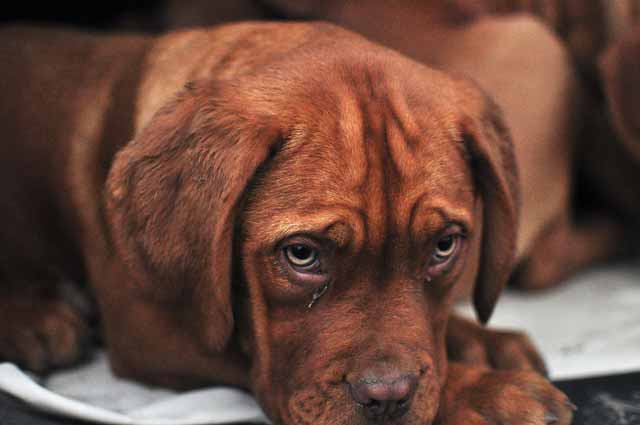
Why is my dog crying in pain randomly? It can be due to glaucoma, a severe condition that causes excessive tears. It occurs because of excessive ocular pressure on the eyes. Symptoms consist of bulging, tears, or cloudy eyes.
More interesting: Why Do Dogs Eat Flies? 6 Causes Explained & Practical Solutions
Why Is My Dog Crying At Night?

If you ask yourself, “Why does my dog keep crying at night?” the root causes below will explain your pet’s conduct.
Hunger
Why is my dog crying at night? You will often discover that canines do cry since they are hungry. If its stomach is empty, it can be pretty uncomfortable and interfere with sleep patterns.
Toilet Break
Your dog’s nighttime crying may be because it has to go outdoors, but it is most likely to use the restroom.
A Warning Sign
When dogs howl or cry at night, they may attempt to communicate where they belong to their friends or other canines. They just want to mark their areas. Another interpretation of a canine’s cry out is that it alerts its owners to potential dangers or intruders.
Being A Baby
Why is my puppy crying at night? Puppies, like newborns, are among those that scream the most at night. Since their primary need is attention, it’s normal not to be concerned about it.
Separation Anxiety
Why is my old dog crying at night? Canines are sociable creatures that like spending time with their owners. They may cry out and whine when separated because they feel scared, lonely, and worried.
Do Dogs Shed Tears When They’re Feeling Sad?

No, canines don’t cry with sorrow. Tears indicate a physical medical problem. Dogs show their sadness in the following ways:
- Whining
- Howling
- Whimpering
- Refuse activities
How To Help Your Dog If They’re Crying Tears?
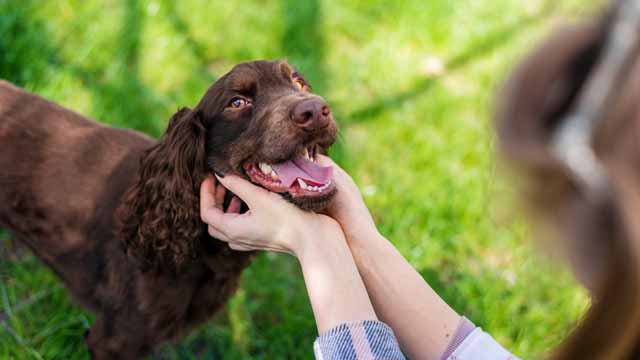
It can be heartbreaking when you see your pup cry. Luckily, there are simple ways to bring comfort and care. These steps can help ease discomfort and support healthy eyes and behavior.
Keep Your Dog’s Eyes Clean
Gently wipe away discharge around your pet’s eyes using a damp cloth. This simple step prevents crust buildup and further irritation.
Avoid Punishing Or Yelling At A Crying Dog
When a dog whines, you must never scold or reprimand them. Identifying the cause of their tears may become much more challenging if this causes them to feel anxious and afraid. Instead, you should apply ways to stop encouraging your pet to cry.
Create A Comfortable Environment For Your Dog
You may lessen your dog’s nervousness and stop them from whining or crying by making their surroundings secure and cozy. Giving them an enjoyable living area and a comfy bed may make them feel safe and relaxed.
Offer Affection And Companionship
Give your pooch love and attention if you feel they haven’t gotten sufficient affection or if you just got back from a lengthy trip. Bring them to the park for walks and errands or spend extra time playing with them.
Respond Selectively To Your Dog’s Needs
You can ignore your pup if you are certain that it is not a whiny reaction to pain or disease. When your pooch stops screaming or crying, reward it with a treat. Your pet will learn that howling loudly isn’t the only way of communicating.
Provide Toys
To avoid boredom and maintain brain activity, dogs require mental stimulation. By giving your pooch games, interactive toys, and puzzle feeders, you may keep them busy and stop them from whimpering and crying.
Ensure Proper Hydration And Nutrition
A good diet will help avoid health problems and foster a positive attitude in your canine companion. The pet’s size, breed, and age should all be considered when selecting high-quality pet food.
Other topics of interest to pet lovers:
When to Seek Veterinary Care for Your Dog’s Tears?
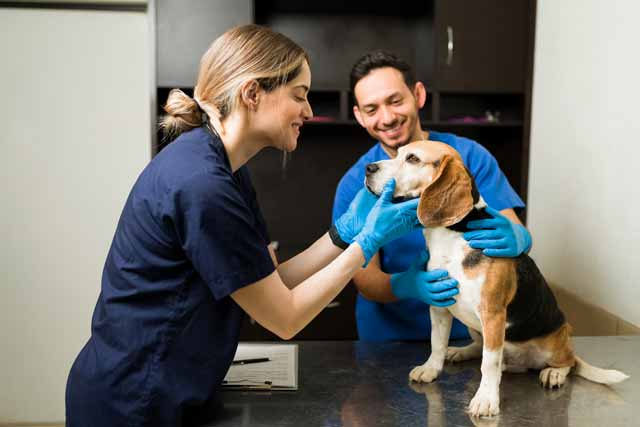
While occasional tears are common, prolonged shifts in your pet’s conduct or mood may indicate a more serious health problem. You should get veterinary care if you observe one of the symptoms below:
- Extended periods of sluggishness or sadness
- Too much weeping or discharge from the eyes
- Notable shifts in eating and drinking patterns
- Symptoms of discomfort or pain
Closing Words
Hopefully, this article has helped clarify your question, “Why is my dog crying tears?” Watery eyes, whether caused by allergies or infections, may indicate an underlying health issue that needs attention. You can ensure your pooch remains healthy, happy, and comfortable by staying observant and seeking timely veterinary care when needed. Don’t hesitate to act if you notice prolonged symptoms.

